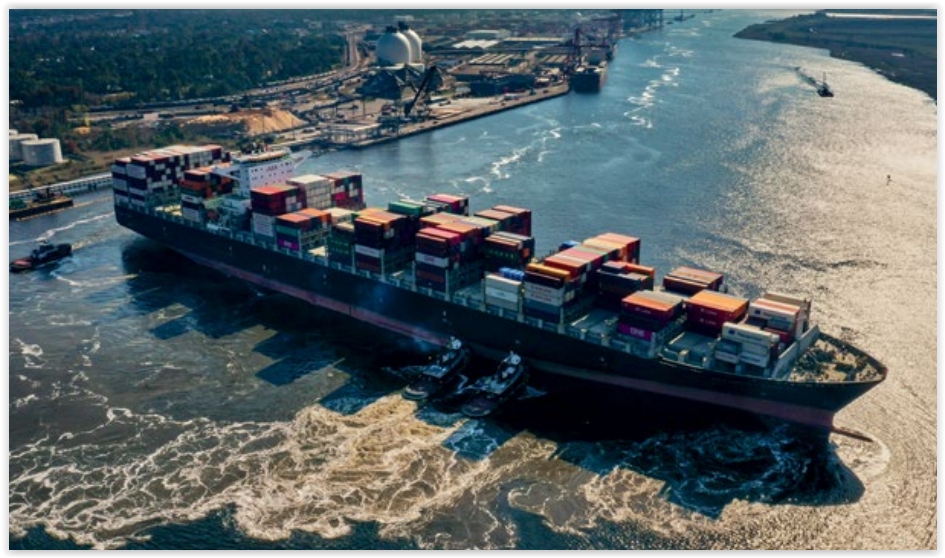The North Carolina State Ports Authority is ready to welcome the largest containerships calling on the United States East Coast following the completion of Phase II of the Turning Basin Expansion Project at the Port of Wilmington. The expansion allows the port to accommodate ultra-large container vessels (ULCVs) with a length of 1,200 feet.

“This is a significant milestone for North Carolina Ports. The completion of this project ushers NC Ports and the Port of Wilmington into the big ship era,” said Paul J. Cozza, Executive Director, North Carolina Ports. “We recognize the importance of this project to our ocean carriers and are thrilled to offer expanded capabilities to better support their business needs.”
The expansion project widened the turning basin in the Cape Fear River from 1,400 feet to 1,524 feet. The additional 124 feet allows 14,000-TEU vessels to safely and efficiently turnaround in the Wilmington Navigational Harbor. Phase II is an extension of the initial expansion project completed in August 2016 which increased the turning basin from 1,200 feet to 1,400 feet.
“This project would not have been possible without the support and collaboration of our local, state and federal partners,” added Brian E. Clark, Chief Operating Officer, North Carolina Ports. “Their efforts helped us ensure the project remained on track especially throughout the uncertainty surrounding the coronavirus.”
The turning basin expansion follows the completion of two major projects aimed at improving access for 14,000-TEU ships to the Port of Wilmington. In February, NC Ports opened 2,600 contiguous feet of container berth space which allows for the simultaneous operations of two ULCVs. North Carolina Ports also completed an air draft improvement project in January which increased the air draft over the Cape Fear River to 212 feet making it easier for containerships to transit to the port.
The recently completed projects are key components of North Carolina Ports’ more than $200 million capital improvements plan aimed at modernizing the Port of Wilmington and enhancing terminal efficiency. Infrastructure improvements include an overhaul of Wilmington’s container terminal and new terminal and gate operating systems. The terminal renovations will double the Port of Wilmington’s annual throughput capacity to 1.2 million TEUs, triple its refrigerated container capacity, and feature a new container gate complex with increased lanes for inbound and outbound truck traffic.
Source: NCPorts